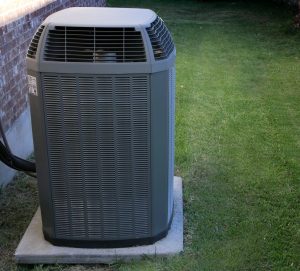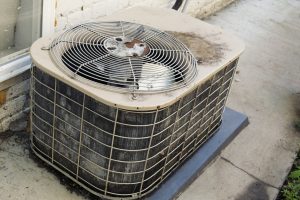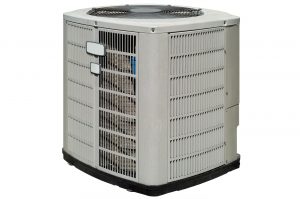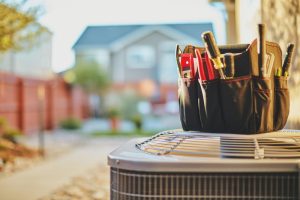 If you’ve never heard the term “short-cycling” before, we don’t blame you. While it’s a well-known term that we use in the HVAC industry, it’s not exactly widespread in our everyday lexicon. So, if you’re just finding this blog post to get the lowdown on what short-cycling is, we’ll answer all your questions.
If you’ve never heard the term “short-cycling” before, we don’t blame you. While it’s a well-known term that we use in the HVAC industry, it’s not exactly widespread in our everyday lexicon. So, if you’re just finding this blog post to get the lowdown on what short-cycling is, we’ll answer all your questions.
However, just figuring out what we mean by “short-cycling” is only half of the equation. The other half is figuring out whether or not you need air conditioning repair in Arlington, VA because of a short-cycling AC that’s starting to struggle.
Regardless of whether or not you’re just becoming more learned on HVAC terms, or you’re in serious need of some AC repair or replacement services, we’ve got your back. Keep reading as we get into the details about short-cycling and what this kind of problem means for you.



 Imagine your air conditioner as the hero of a superhero story. When temperatures rise and things become muggy and uncomfortable, your AC always comes to save the day. It cools you off and makes you feel comfortable no matter what the temperature is outside. These systems really are like heroes to us when we need them!
Imagine your air conditioner as the hero of a superhero story. When temperatures rise and things become muggy and uncomfortable, your AC always comes to save the day. It cools you off and makes you feel comfortable no matter what the temperature is outside. These systems really are like heroes to us when we need them! Air conditioners aren’t supposed to be noisy by any means. Sure, if you hear air gently whooshing from your vents and a slight “click” when the system starts or stops, that’s quite normal, but anything else can be a sign that something is wrong. Air conditioners are specifically constructed by manufacturers to operate as quietly as possible, so that they don’t disturb homeowners and allow us to pretend that there’s no air conditioning running in the first place.
Air conditioners aren’t supposed to be noisy by any means. Sure, if you hear air gently whooshing from your vents and a slight “click” when the system starts or stops, that’s quite normal, but anything else can be a sign that something is wrong. Air conditioners are specifically constructed by manufacturers to operate as quietly as possible, so that they don’t disturb homeowners and allow us to pretend that there’s no air conditioning running in the first place. Do you know what sets a heat pump apart from something like a furnace or a heater? It does not generate new heat, but transfers existing heat from the air outside into your home. Furnaces and boilers, on the other hand, create new heat. This is accomplished either by electric resistance or the combustion of a fuel like gas or oil. In this regard, heat pumps are a lot like air conditioners—both ACs and heat pumps use the refrigerant cycle to move heat out of a home (and into a home, in the case of a heat pump).
Do you know what sets a heat pump apart from something like a furnace or a heater? It does not generate new heat, but transfers existing heat from the air outside into your home. Furnaces and boilers, on the other hand, create new heat. This is accomplished either by electric resistance or the combustion of a fuel like gas or oil. In this regard, heat pumps are a lot like air conditioners—both ACs and heat pumps use the refrigerant cycle to move heat out of a home (and into a home, in the case of a heat pump). We all love our air conditioning systems, particularly when the heat and humidity of the summer season are really in full swing. As long as the system is up and running reliably, most homeowners are happy and don’t really give the system much more thought. While we certainly don’t mean to imply that you should ever attempt to service your air conditioner on your own, we do think that you should have some understanding of how your
We all love our air conditioning systems, particularly when the heat and humidity of the summer season are really in full swing. As long as the system is up and running reliably, most homeowners are happy and don’t really give the system much more thought. While we certainly don’t mean to imply that you should ever attempt to service your air conditioner on your own, we do think that you should have some understanding of how your  If you are looking for a resource that will tell you that there is a way in which to avoid problems with your air conditioning system indefinitely, then you have come to the wrong place. Why won’t we offer up these encouraging words? Well, because we are not in the business of lying to our customers. Nothing would make us happier than to guarantee that you’ll never encounter problems with your AC, but that is just not possible.
If you are looking for a resource that will tell you that there is a way in which to avoid problems with your air conditioning system indefinitely, then you have come to the wrong place. Why won’t we offer up these encouraging words? Well, because we are not in the business of lying to our customers. Nothing would make us happier than to guarantee that you’ll never encounter problems with your AC, but that is just not possible.